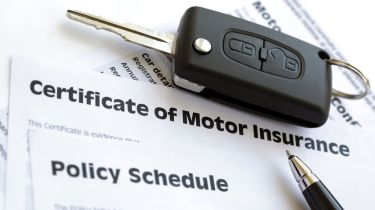Insurance firms accused of secretly “taxing the poor” amidst heat from car finance scandal
Both car insurance and finance firms are under fire for covert practices that see consumers unknowingly paying more

Car insurance firms have been accused of imposing a “tax on the poor” via the hidden costs of insurance premium finance, all at a time when brokers are also under fire for their undisclosed practices as part of the ongoing car finance scandal.
Car insurance can be paid annually or monthly – the latter of which demands paid interest due to the policy in effect being taken out as a loan. However, a new probe by the Financial Conduct Authority is investigating the likes of Admiral and Aviva, which have both been accused of a practice known as ‘double-dipping’.
Double-dipping involves adding hidden costs on top of the interest charged. These are applied during the insurance screening process in which a customer adds their details and selects whether they want to pay monthly or annually – this last question is typically asked twice. Sources have told the Financial Times that choosing to pay monthly the first time around can result in the applicant being shown a higher premium, even if they later changed their mind and chose to pay annually.
Thomas Bateman works as an analyst for Italian investment firm, Mediobianca. He told the FT that practices such as double-dipping mean “customers may struggle to make a good financial decision, given a portion of the cost of paying monthly is hidden”.
Hidden costs in car insurance
Both insurance companies have denied that their products include hidden costs, with an Aviva spokesperson stating: “We take into account lots of different factors when calculating a premium that reflects each customer’s risk. If a customer then chooses to pay monthly, alongside their insurance premium, they are also provided with an [annual percentage rate] which represents the cost of providing credit.”
The FCA launched its investigation into such practices in October last year as part of a wider government effort to address spiralling insurance costs. An update is expected to be provided in June, roughly the same time when we expect to receive the Supreme Court’s ruling on the ongoing car finance scandal.
Having started at the beginning of April, the three-day Supreme Court hearing is set to determine whether “secret” car finance commission agreements were illegal in the first instance, something that could open the door for a public redress scheme involving billions of pounds in payouts.
The FCA told the Supreme Court that brokers are not required, by law, to place the best interests of the customer above their own (a legal obligation known as fiduciary duties). In a statement, the financial watchdog said: “The sweeping approach of the Court of Appeal in – effectively – treating motor dealer brokers as owing fiduciary duties to consumers in the generality of cases goes too far.”
Financial chaos
Such a sentiment was backed up by the National Franchised Dealers Association, which warned of “financial chaos”. The trade body said that “allowing the scope of common law duties to develop in leaps and bounds, rather than incrementally, inevitably gives rise to significant uncertainty and instability”.
The FCA’s intervention has been slammed by legal firms, with the managing director of Courmacs Legal, Darren Smith, telling the Daily Mail: “The regulator should be standing up for consumers, not protecting lenders.”
Nevertheless, the FCA warned the Court to exercise “a degree of caution” when it comes to evaluating whether or not to rule in favour of the lenders. Auto Express has approached the watchdog for comment, but is yet to receive a response.
Did you know you can sell your car through Auto Express? We’ll help you get a great price and find a great deal on a new car, too.
Find a car with the experts








